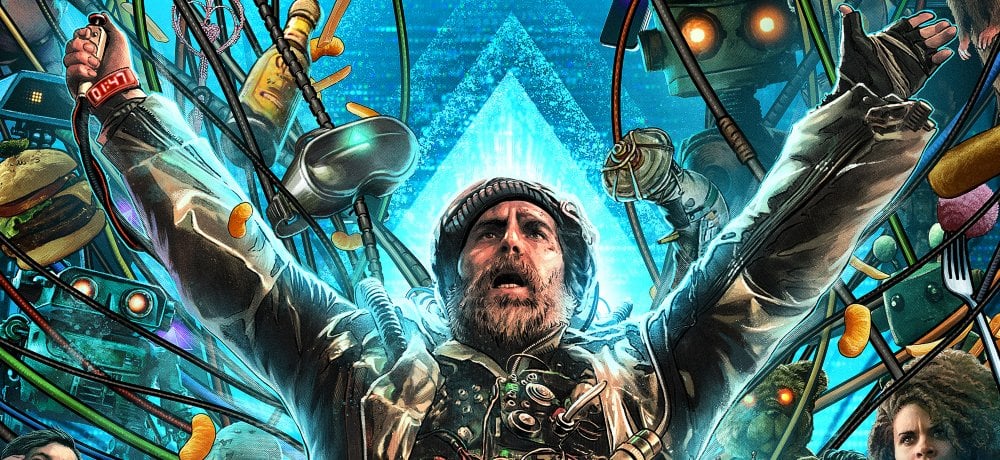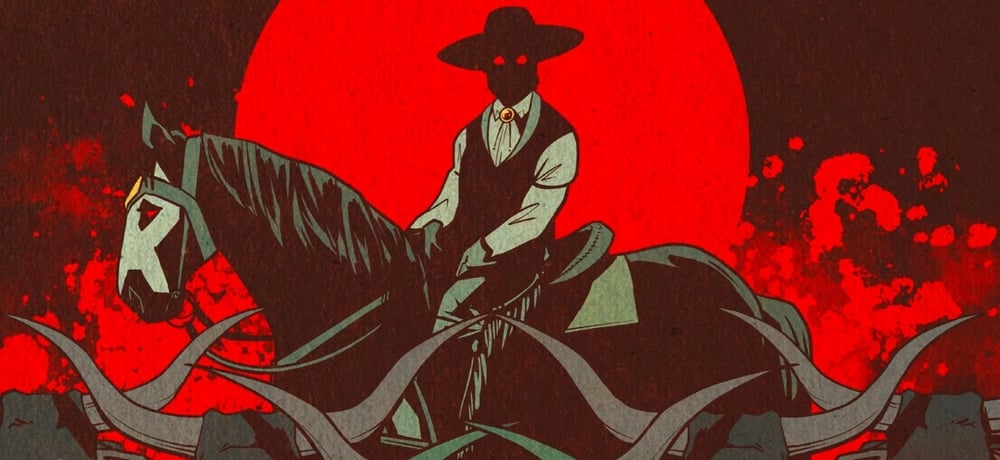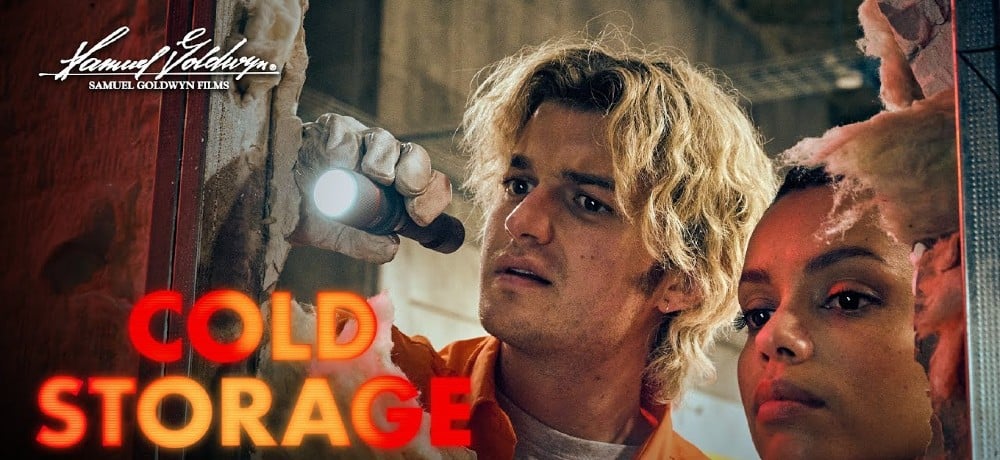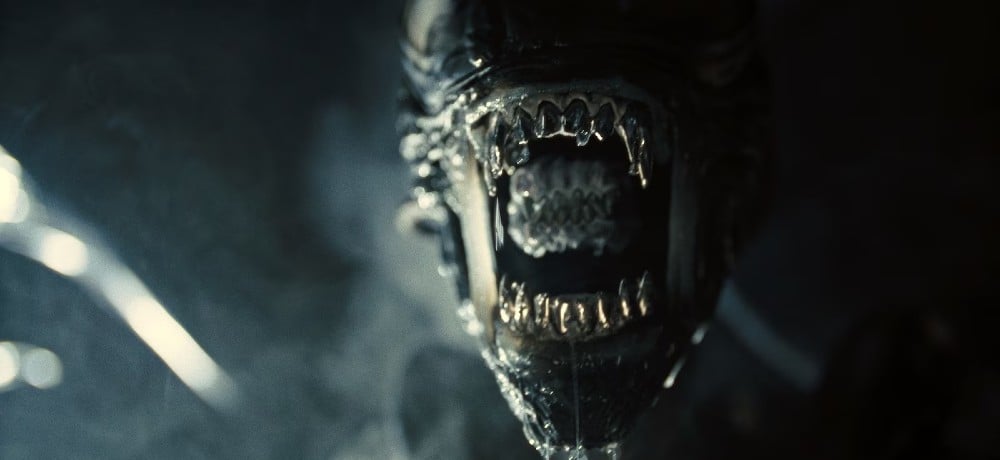






Fede Alvarez clocks another successful franchise "takeover" with Alien: Romulus, but it’s not without faults. Celestial backdrops are stunners, Legacy Effects rewards Alvarez's dedication to using practical over digital (whenever possible), and horror-forward mindsets pack in exhilarating jolts. That said, it's an underwhelming evolution into franchise pandering that renders Alvarez and co-writer Rodo Sayagues' canonization rigid and routine. Evil Dead (2013) is always "Fede Alvarez's Evil Dead;" Alien: Romulus plays like Alvarez has studio-mandated ties he's checking off like assignment tasks. Everything gets grossly psychosexual, delirious, and dreadfully dark as per Alvarez's trademarks, just never on a level that kicks into hyperdrive.
Cailee Spaeny continues her remarkable run of 2024 performances as Rain Carradine, a youthful space colonist who's sick of Weyland-Yutani's corporate stranglehold over the working class. Rain's only companion is her stuttering synthetic Andy (David Jonsson), programmed with a prime directive to protect Rain. After Weyland-Yutani again shifts Rain's workload goalposts to prevent her from transferring elsewhere, she joins other colony young adults on a scavenge mission that could lead them to greener planetary pastures. Tyler (Archie Renaux) suggests an abandoned Weyland-Yutani vessel could be their ticket to freedom, as long as Rain allows Andy to override access systems. Before long, the rag-tag crew finds themselves exploring an abandoned "Romulus" space station on a collision course with asteroid rings, but Tyler's pirates will be long gone before impact — that is, until they accidentally release the remnants of the Nostromo's nightmares.
Alien: Romulus squeezes between Alien and Aliens in the chronological timeline. Everything else still exists, unlike how David Gordon Green's Halloween retcons everything past John Carpenter's original. Alvarez wastes no time exhuming Ridley Scott's Alien origins, reanimating a familiar face that becomes a pipeline for connectivity to Scott's Prometheus and Covenant mythology. It's a lot to soak in, but ultimately undercuts suspense because the deepfaked features of a previous synthetic organism (yikes on bikes) or an icky black goo instantly expose where Alvarez's narrative heads. There's a slavish retrofitting of old ideas atop a new sandbox, as Alvarez is challenged with bridging a series' iconic history with its fresher intentions for better or worse.
Alvarez returns to structural basics, maybe too comfortably. Rain and Andy's companionship drives uneasy fears about A.I. integration, but supporting characters don't transcend their plot functions. Videos and games explain Tyler's knowledge of military specifics, Isabela Merced's Kay is pregnant, Spike Fearn's dickish Bjorn harbors resentment for androids, and Aileen Wu's Navarro assumes pilot duties. There's nothing more profound; Alien: Romulus lacks the ability to batter audiences with an emotionally charged death. Predatory tension shows diminishing returns even though victims aren't space marines or Weyland-Yutani sycophants — they're societal orphans left behind by the system. That should account for so much more empathy, and yet, as the body count rises, Alien: Romulus churns forward like it's being clouded by its own primary objective to fulfill generic Alien expectations.
In staying "routine," Alvarez focuses on steering Alien: Romulus back towards fright-first mentalities that originated in Alien and continued elsewhere in the video game Alien: Isolation. Galo Olivares' cinematography feels reminiscent of popular survival horror game perspectives, tilting the frame askew down empty hallways or treating Facehugger chase sequences like quick time events. Alvarez injects a healthy usage of hair-raising jump scares and uptempo motion thrills, especially rubbery Facehuggers that trigger arachnophobic fears. Xenomorphs slink out of darkened shadows, Facehugger tendrils are disgustingly yanked from esophagi, and Alvarez strips Alien: Romulus down to the franchise's cosmic creature-feature dominance. What's frightening becomes uncomfortable and grotesque as acidic blood melts bodies to bone or superpowered flashlights reveal alien lifeforms banging against ribcages like a monstrous shadow puppet.
Visuals are overall impressive, especially voyage sequences that blend VFX with miniature assemblies. Artistic wizard Phil Tippett is involved in stop-motion applications, while veteran craftsman Ian Hunter focused on miniature spaceships that recreate tactile special effects spectacularly seen in throwback sci-fi classics from Star Wars to Aliens. These elements are merged with gigantic planets circled by glittery rings of death, painting these gawk-worthy planetarium highlights that are as wondrous as they are gorgeously intimidating. Alvarez's dedication to practical Romulus sets lit with blood-red flares become a steel labyrinth that conceals Xenomorph threats, selling the emptiness of hanger bays and coldness of settings like a floating coffin. Everything looks up to snuff, including Legacy Effects' gigantic Xenomorph animatronics or the seven-foot-tall actors wearing beloved head-to-toe Xenomorph suits.
That's the problem with Alien: Romulus — there's plenty to adore. Alvarez includes callbacks to Alien lore from multiple mediums, enamored with Scott's eccentrics but maybe too interlocked. For as accomplished special effects shine at their best, an entire character — a resurrected android antagonist — looks horrendous. It's a glaring example of nostalgia gone wrong, not to mention the third act's iffy straddling of Prometheus and Covenant lineage. Alien: Romulus is at its best when Alvarez and Sayagues sneak away from forcible franchise adherence. When stuck between honoring standalone appeal and pointing at pictorial references or dialogue quotes like museum tourists? It's a noticeable downstep.
Is Spaeny a suitable Sigourney Weaver analog? For the part of Rain Carradine, the moral backbone for all of Alvarez's prickly themes between artificial intelligence and classist escapism, Spaeny is a bang-on lead who takes to all the terrors, triumphs, and interstellar tenacity we expect from her role. Does Alvarez succeed in marrying elements of "Mothers" and "Queens" with body horror, as seen throughout Alien entries? Xenomorph cocoons modeled after H. R. Giger's undulating, ribbed designs sure aren't subtle illustrations of birthing, but the third act feels dully predictable and not as fulfilling in turn. The movie works in backs and forths, like how David Jonsson's tricky yet authentic portrayal of a disabled automaton who loves dad jokes only exploits how poorly his deepfaked counterpart is realized. The highs are high, and the lows are mediocre — but that's still disappointing given Alvarez's provocateur background.
To come full circle, I repeat — Alien: Romulus isn't a bad movie. Alvarez does so much right, and the stumbles aren't damning enough to cause an implosion, but even that's still a letdown in comparison. Alvarez staked his claim in the Evil Dead franchise, where he fits more like a cog in the Alien machine. That's a bonkers thing to say, given where storytelling ventures towards the end of Alien: Romulus, but that's also an indication of its staying power. For almost two hours, Alvarez competently gets the job done — yet there's so much left on the table. He rights the ship and gives the people "what they want," but in doing so, robs us of further moments like his "Xeno blood in zero gravity" ingenuity. When the leash loosens and he's allowed to be unapologetically and impactfully himself — otherwise, he’s a dreamer playing with someone else’s toys.
Movie Score: 3/5